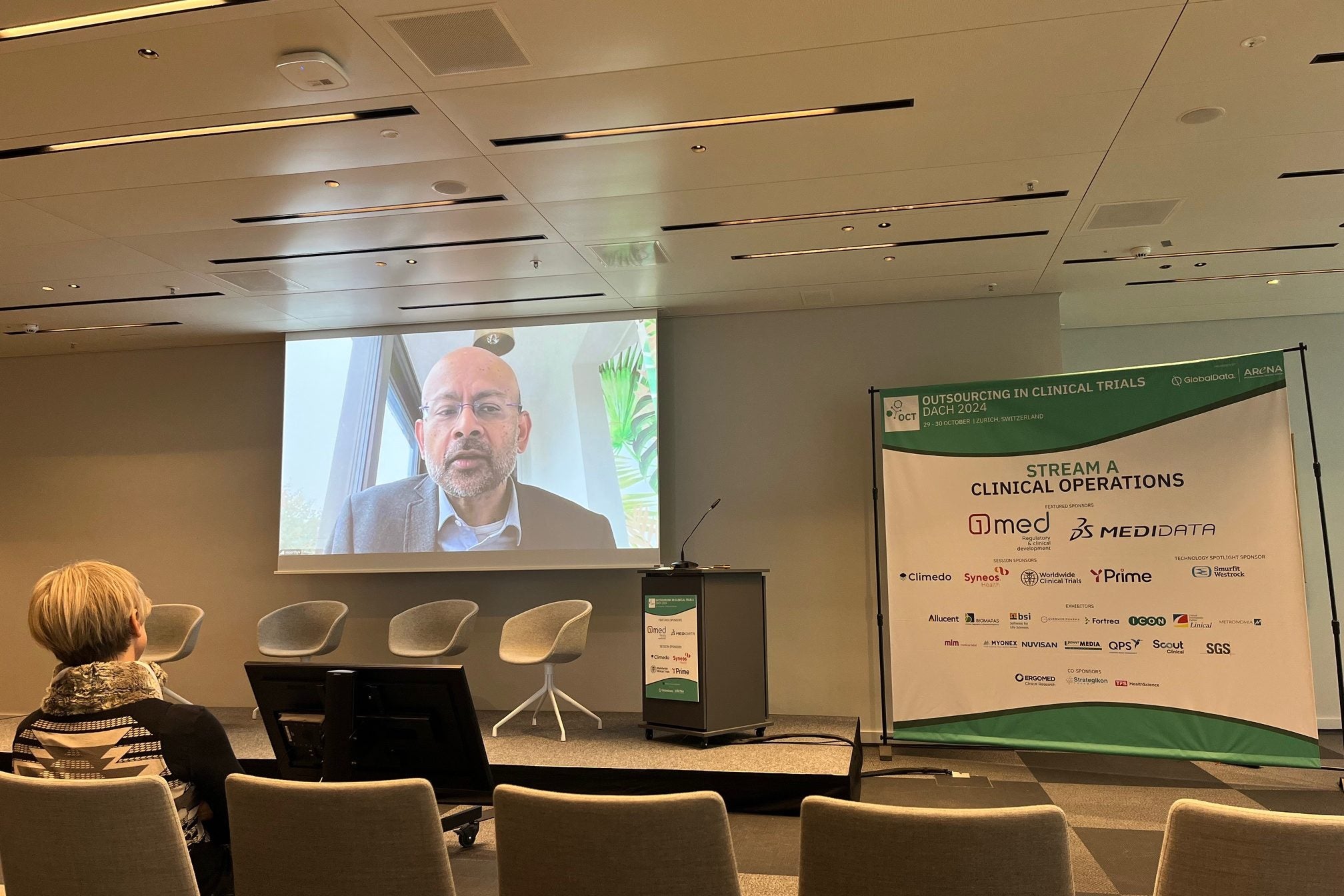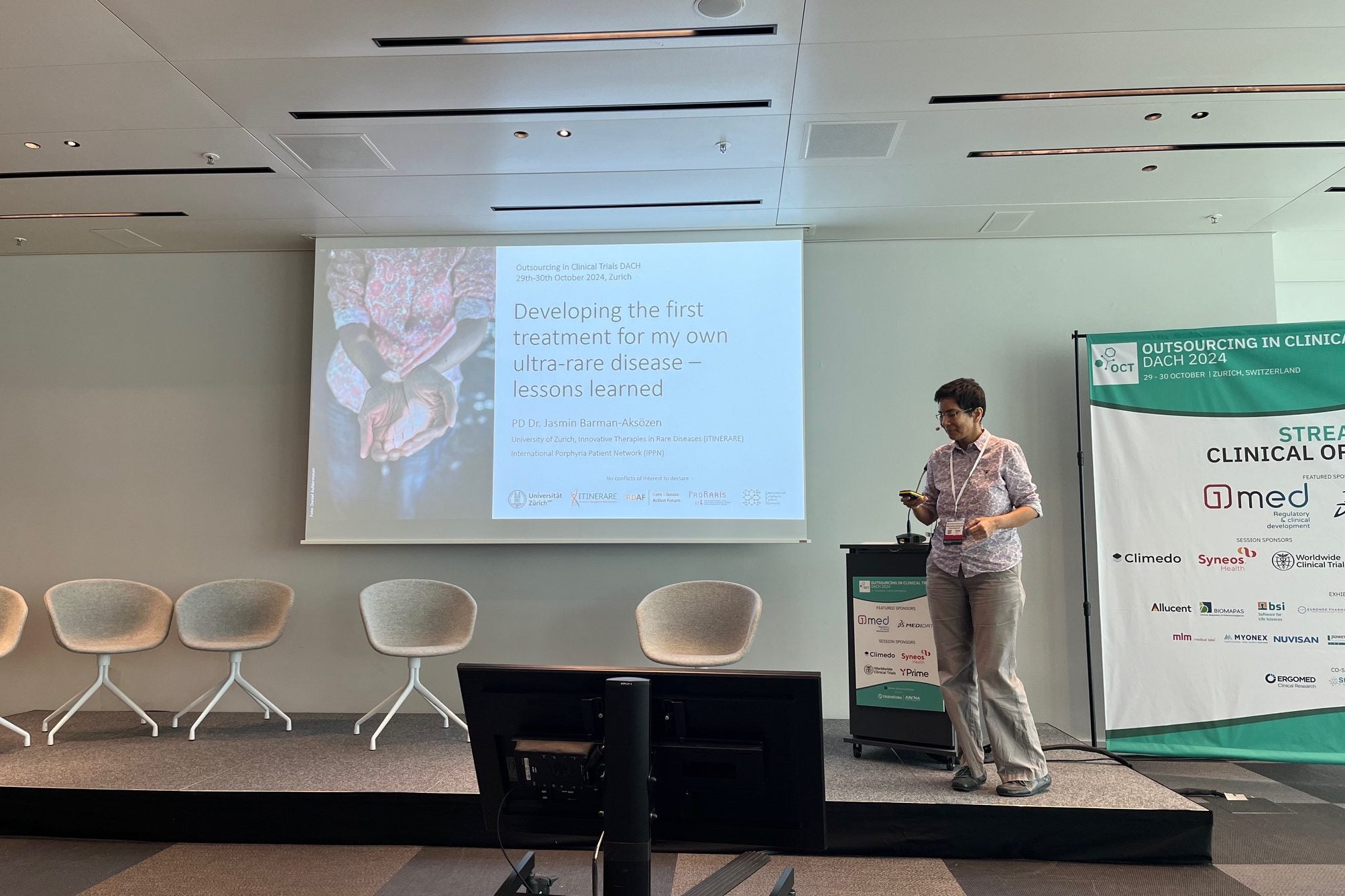
Amid tightening EU regulations, a growing emphasis on digitalisation and artificial intelligence (AI), and complex questions around ethics, the viability of clinical trials in the DACH region and rest of the world was a central topic at the Outsourcing in Clinical Trials (OCT) DACH 2024 conference.
Held over two days (29–30 October) in Zurich, Switzerland, the conference brought together pharmaceutical companies, biotechs, contract research organisations (CROs) and other key stakeholders to discuss and debate the latest in technology, regulatory frameworks, and ethical standards in the DACH region – which encompasses Germany, Switzerland, and Austria – and the rest of the world.

Discover B2B Marketing That Performs
Combine business intelligence and editorial excellence to reach engaged professionals across 36 leading media platforms.
Conducting trials in the DACH region
EU regulations for clinical trials were a focal point at the meeting. Andrea Sauerland, senior vice-president of clinical operations at Endatronix, voiced concerns that Europe’s Medical Device Regulation (MDR) may hinder innovation, particularly for smaller companies. Meanwhile, Switzerland’s relative regulatory independence, via its own health authority Swissmedic, could provide some advantages, suggested Ina Meyer from Novartis.
Experts also highlighted the importance of partnerships, education, and collaboration between sponsors, CROs and clinical trial sites in the DACH region. This collaborative outlook can help overcome challenges in the region like patient recruitment. While there has been progress with electronic health records and digitalisation, there is a need for better patient identification using real-world evidence during the recruitment process, said Meyer.
Technology and ethics in the spotlight
Global perspectives also highlighted the value for promoting inclusivity and diversity in clinical trials. Vasee Moorthy, senior advisor at the World Health Organization (WHO), discussed a new guidance aimed at reducing “major research waste” by improving trial design, conduct, and oversight. This guidance encourages the inclusion of underrepresented populations, such as pregnant women and children, aiming for more equitable research across all income levels.

One major WHO recommendation concerns digitalisation and the use of electronic records. The guidance encourages a shift towards fully digitalised clinical trial processes and data management, though many in the field are wary of moving forward without robust ethical safeguards.

US Tariffs are shifting - will you react or anticipate?
Don’t let policy changes catch you off guard. Stay proactive with real-time data and expert analysis.
By GlobalDataThe use of AI emerged as a transformative trend with its applications across drug development, research, and clinical trials being examined by gathered experts. Beyza Karakoy of GlobalData urged the industry to “aggressively embrace AI”. However, as digitalisation gains momentum, ethical and regulatory challenges remain, particularly concerning data privacy, patient safety, and equity.
Regulatory bodies are also responding to these shifts. Eva Herrmann-Keiner from Neurimmune noted that the US Food and Drug Administration (FDA) has formed dedicated working groups to address the use of AI in clinical trials. Francine Metelo Masega-A-Gulema from Pfizer highlighted that accessibility and infrastructure disparities may limit who benefits from these advancements. “Are these innovations accessible to everyone?” she questioned, underscoring the need for inclusive trial designs that reach underserved communities and build trust.
The conference also spotlighted research from within the DACH region. Jasmin Barman-Aksözen, a research investigator at the University of Zurich was closely involved in the research behind the pioneering treatment for erythropoietic protoporphyria (EPP). Barman-Aksözen, who has EPP herself, shared insights on the development of the treatment Scenesse (afamelanotide) and the patient-centric nature of the design for its clinical trials.

Scenesse, developed by Australia-based biotech Clinuvel Pharmaceuticals, received European approval in 2014. Barman-Aksӧzen noted that she became the first patient to present directly to the European Medicines Agency (EMA) committee before its approval vote, offering insights that clarified both the condition and the treatment’s impact. This approach – which incorporates patient and physician clinical experiences in regulatory decisions – is one that is now more widely adopted.
The conference was hosted by Arena International Events Group, a B2B events company owned by GlobalData, the parent company of Clinical Trials Arena and Pharmaceutical Technology.





